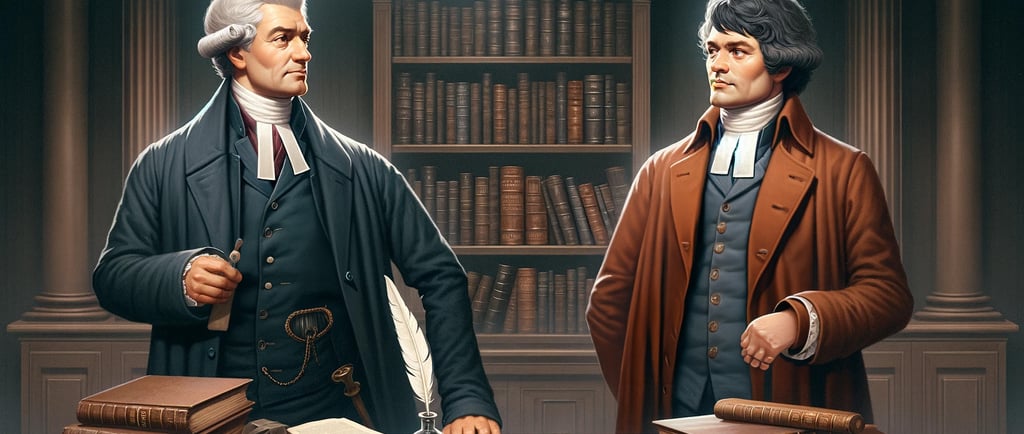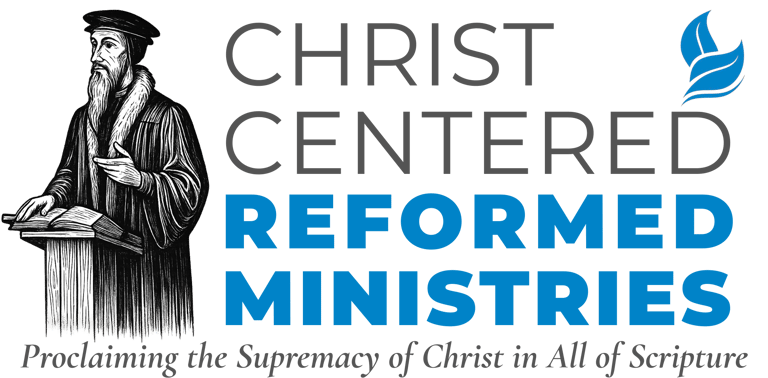Augustus Toplady / John Wesley Controversy
The controversy between Augustus Toplady and John Wesley, two prominent figures in 18th-century Christian theology, centered around a significant doctrinal disagreement. Toplady, a Calvinist, accused Wesley, an Arminian, of altering the meaning of a tract that Toplady had written. This tract, which Toplady had translated from Latin, was an excerpt from Jerome Zanchius' work "Absolute Predestination." Wesley reportedly changed its meaning completely, disavowing the doctrines of grace that it contained, and then published it with Toplady's initials, without Toplady's knowledge. This act was perceived by Toplady as an attempt by Wesley to undermine the impact of his (Toplady's) work in England.
HISTORY
Justin Hoke
1/3/20243 min read


Below is a Modern English rendering of a letter from Augustus Toplady to Mr. John Wesley stemming from a theological disagreement. Toplady, a Calvinist, had published a pamphlet titled "The Doctrine of Absolute Predestination," based on Jerome Zanchius' Latin work. Wesley, an Arminian, subsequently released an altered version of this pamphlet under Toplady's name, significantly changing its original Calvinistic content. This act of misrepresentation prompted Toplady to write a letter to Wesley, confronting him for his actions. The original letter from Toplady to Wesley can be found in "The Complete Works of Augustus Toplady," published in 1794 and re-released by Sprinkle Publications in 1987, specifically on pages 719-728.
Dear Sir,
I'm writing to address the recent controversy that has arisen from my publication of a pamphlet titled "The Doctrine of Absolute Predestination," which was primarily a translation of Jerom Zanchius' Latin work. Although my book did not mention or allude to you, John Wesley, its Calvinistic content seemed to counter the doctrines you've been teaching.
In March 1770, you released a paper claiming to be an abridgment of my pamphlet. However, it was clear that you altered its content, adding your interpretations and even publishing it under my name. This act was not only misleading but also a deliberate attempt to misrepresent my views and undermine the Calvinistic doctrines I presented.
Your secretive distribution of this altered abridgment within your circles is a clear indication of your intentions to deceive. This approach, akin to tactics used by Jesuits, lacks the transparency and integrity expected in theological discourse. As a fellow Christian leader, I expected a more honorable and open engagement from you rather than resorting to such underhanded methods.
Furthermore, your version of my work included additions and alterations that significantly distorted the original message. This deceitful strategy was employed to protect your own doctrinal stance and mislead your followers. It is disappointing to see such a lack of fidelity to the original text, especially when you used my name to lend credibility to your version.
I urge you, Mr. Wesley, to reconsider your approach. If you wish to challenge the doctrines I present, do so openly and honestly. Engage in a fair theological debate rather than resorting to manipulation and misrepresentation. Such conduct is unbecoming of our shared calling to uphold the truth of the Gospel.
Remember, our ultimate aim should be to seek and uphold the truth, not to win arguments through deceit. Let us both strive to engage in discussions that honor God and reflect the integrity of our faith.
Sincerely,
Augustus Toplady
HOW CAN WE BENEFIT FROM CONTROVERSIES OF THE PAST?
The Biblical narrative often emphasizes the importance of truth and integrity. In Ephesians 4:25, Paul exhorts, "Therefore, putting away lying, 'Let each one of you speak truth with his neighbor,'" a principle that applies profoundly in theological debates. The Toplady-Wesley controversy underscores the necessity of honest engagement with theological differences. Misrepresenting another's views, especially in matters of faith, contravenes the biblical mandate of speaking truth in love (Ephesians 4:15).
Moreover, the incident serves as a testament to the importance of doctrinal fidelity. Jude 1:3 urges believers "to contend earnestly for the faith which was once for all delivered to the saints." Toplady's reaction to Wesley's alteration of his work reflects a deep commitment to preserving the integrity of doctrinal truths, a stance that finds its echo in the apostolic exhortation to guard the purity of the Gospel message.
However, the controversy also brings to light the dangers of theological disputes becoming personal. As Christians, while earnestly contending for the faith, there is a fine line between defending truth and descending into personal animosity. This balance is poignantly captured in 2 Timothy 2:24-25, "And a servant of the Lord must not quarrel but be gentle to all, able to teach, patient, in humility correcting those who are in opposition." The escalation of the Toplady-Wesley dispute serves as a cautionary tale of how personal grievances can overshadow the pursuit of theological clarity.
Yet, there is beauty in the diversity of thought that the Toplady-Wesley controversy represents. Just as the body of Christ is composed of many parts (1 Corinthians 12:12-27), so too the church's theological heritage is enriched by diverse perspectives. It is through the rigorous testing of ideas, as exemplified in the Berean approach of Acts 17:11, that the church hones its understanding of the divine mysteries.
In conclusion, studying historical theological controversies like that between Toplady and Wesley is not just an academic exercise. It equips us with discernment, encourages us to seek truth with integrity, and reminds us to engage in theological discussions with humility and love. As we delve into the depths of such conflicts, we are reminded of the Apostle Paul's exhortation in Philippians 1:9-10, "And this I pray, that your love may abound still more and more in knowledge and all discernment, that you may approve the things that are excellent." In understanding the past, we glean wisdom for our present journey, ensuring our pursuit of truth is always tempered with love and grace.
